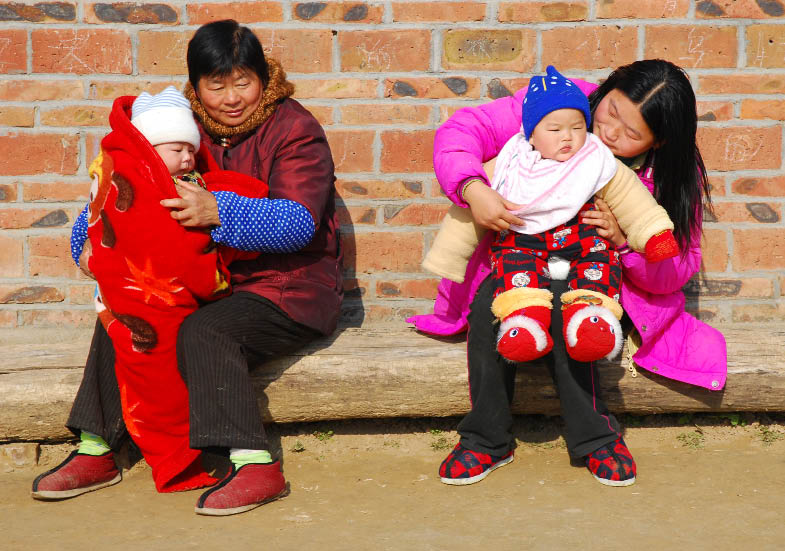Raw Deal for Rural Left-behind Women
By staff reporter JIAO FENG
RAPID social development and the need for manpower in urban areas have prevailed upon many men to leave their rural hometowns and hence their families. It consequently falls to many wives to labor in the field, raise children and take care of elderly parents as well as manage household affairs. Worst of all, they must subsist for extended periods without the companionship and support of their husbands.
 |
|
High living costs prevent rural women from being with their husbands working away in cities. |
No Choice
Zheng Xiuwei first met her husband Zhu Jiawen over a decade ago in Fujian Province, where they both worked. Zheng bore two sons whom Zhu’s parents looked after in their Chongqing hometown. After Zhu’s parents passed away four years ago, Zheng had to give up her job and return to her rural home to take care of her sons while her husband continued working in the city.
Many rural migrant workers are in a similar predicament. Tang Chengfang and Li Heyuan have been married nine years. For most of that time Tang lived in the city with her husband where he works as carpenter, cooking his meals and washing his clothes in the 15-square-meter room they rented for RMB 70 per month. The couple’s two daughters lived with Tang’s father and sister-in-law. Bearing a son in 2011 changed their lives. Tang went back to live with Li’s family and take care of all three of her children. “We have a spacious house back in our hometown and living costs are low. My children can go to the local schools there,” she explained.
Most rural women return home during the latter months of their pregnancies and stay until their offspring reach school age. They may then go to join their husbands in cities and find work. Greater awareness of the dire consequences of leaving children to grow without parental guidance prompts some mothers to take their offspring with them. But many families cannot afford the high costs of keeping three or more people in an urban environment. More often than not, married women have to stay in their rural hometowns and raise their children single-handed. They simply have no other choice.
A recent survey shows that among China’s 87 million left-behind rural residents, 47 million are women, 91.7 percent of whom rely on their husbands’ earnings to keep their families. Meanwhile, they must plow fields, rear livestock and run the household. The traditional rural roles whereby women weave and men plow have changed; the man of the house now works away from home and the woman stays home and does farm work.

